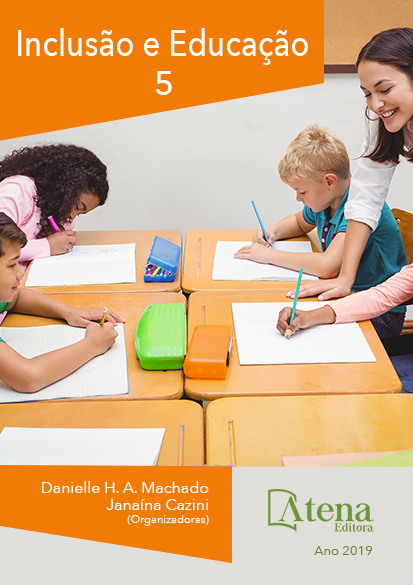
FORMAÇÃO DOCENTE E TRANSFORMAÇÃO: ANALISANDO A FORMAÇÃO A PARTIR DA REALIDADE LOCAL
Na educação escolarizada a
discussão da temática étnico-racial, propicia
o fortalecimento da cultura negra no campo
educacional e contribui na revalorização de
segmentos culturais não valorizados negros/
as. A formação de professor na temática étnicoracial, possibilita o vislumbre sobre novos
olhares em torno da questão racial brasileira.
No espaço da escola quilombola, a formação
de professor que venha ensejar está temática
contribui para a afirmação cultural, identitária e
política de alunos e alunas quilombola, propicia
o entrelaço entre comunidade e escola, mas
permite a valorização cultural e social do povo
negro, a partir das ações desenvolvidas pelos
docentes. Este artigo tem como objetivo, refletir
sobre o relato de experiência de formação de
professor para a temática étnico-racial, numa
escola pública, na comunidade quilombola
de Paratibe, João Pessoa-PB. Trata-se de
uma pesquisa bibliográfica e documental,
partindo de uma experiência educativa com a
temática racial, sendo consubstanciada pelas
tessituras de autores como: Canclini (1989),
Dadesky (1997) e Gomes (2003) dentre outros.
Compreendemos que formar professores que
vão atuar em escola de quilombo a partir da
temática, põe em evidência as propostas da lei
10.639/2003 e de demais políticas educacionais
que discutem a temática. A educação na
perspectiva das relações étnicoraciais propicia
uma ética para educar, e neste sentido, a
formação docente aportada nestas discussões,
visa colaborar com a escola, com a comunidade
e com o saber-fazer docente e o alunado,
pois ao ser inserida no espaço da escola, não
apenas é relevante para a integração/interação
social dos sujeitos aprendentes, mas possibilita,
discutir e produzir saber a partir da sala de aula.
FORMAÇÃO DOCENTE E TRANSFORMAÇÃO: ANALISANDO A FORMAÇÃO A PARTIR DA REALIDADE LOCAL
-
DOI: 10.22533/at.ed.33919150120
-
Palavras-chave: Formação de professor. Educação quilombola. Temática Racial.
-
Keywords: Teacher training. Quilombola education. Racial Theme.
-
Abstract:
In school-based education, the
discussion of ethnic-racial issues favors the
strengthening of black culture in the educational
field and contributes to the revaluation of nonvalued black cultural segments. The formation
of a teacher in the ethno-racial theme provides
a glimpse of new perspectives on the Brazilian
racial question. In the space of the quilombola school, the formation of a teacher that
comes to give rise to this theme contributes to the cultural, identity and political affirmation
of quilombola students and pupils, fosters intertwining between community and school,
but allows the cultural and social valorization of black people, from the actions developed
by the teachers. This article aims to reflect on the report of teacher training experience
for ethnic-racial issues in a public school in the Quilombola community of Paratibe,
João Pessoa-PB. It is a bibliographical and documentary research, starting from an
educational experience with the racial theme, being substantiated by the tessituras of
authors such as: Canclini (1989), Dadesky (1997) and Gomes (2003) among others.
We understand that training teachers who will work in quilombo school based on the
theme, highlights the proposals of law 10.639 / 2003 and other educational policies that
discuss the theme. Education in the perspective of ethno-cultural relations provides an
ethics to educate, and in this sense, the teacher training provided in these discussions
aims to collaborate with the school, with the community and with the teaching and
student know-how, as it is inserted in space of the school, is not only relevant to the
integration / social interaction of the learning subjects, but it enables, discusses and
produces knowledge from the classroom.
-
Número de páginas: 15
- Saulo José Veloso de Andrade
- SAULO JOSÉ VELOSO DE ANDRADE


